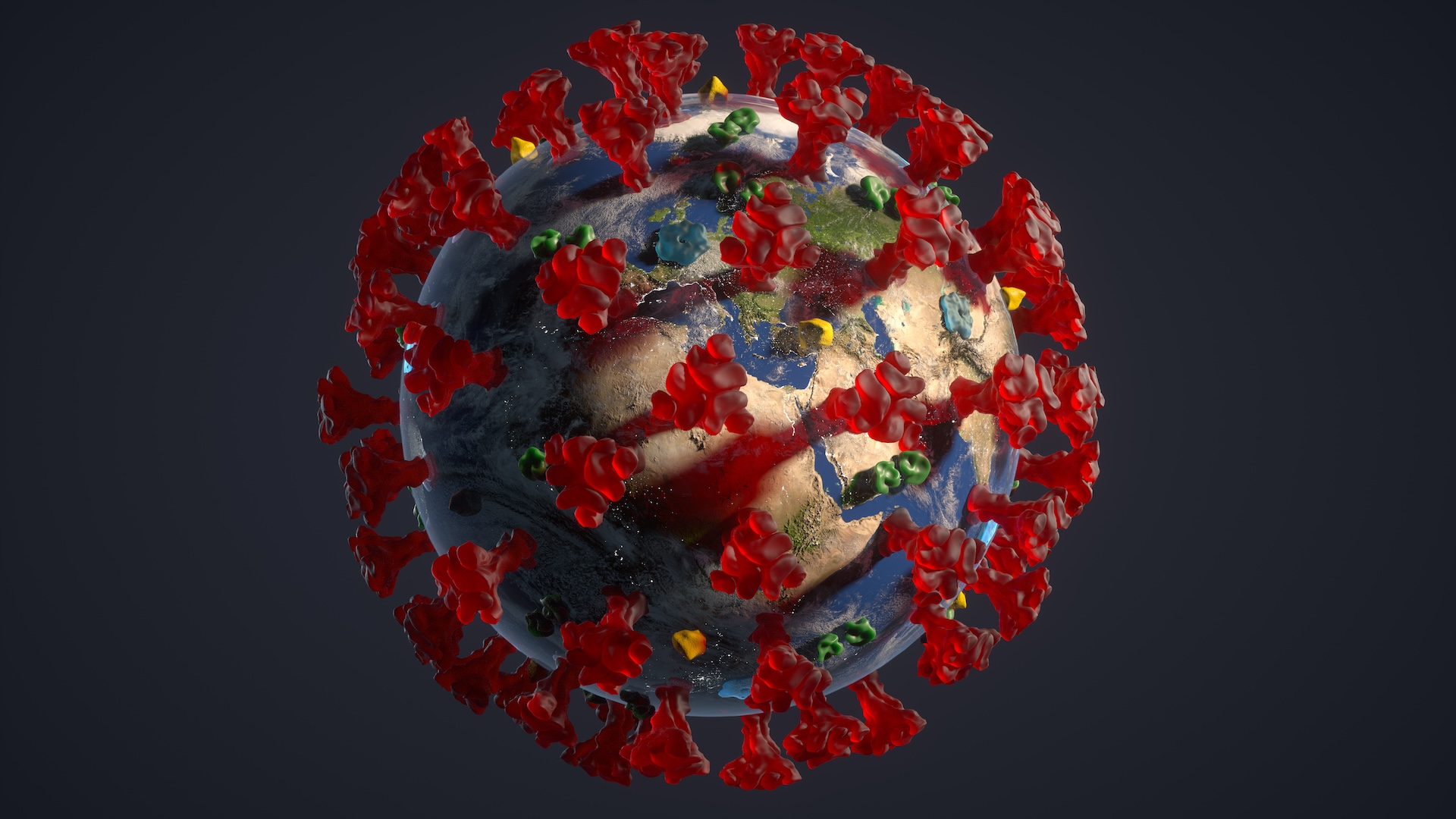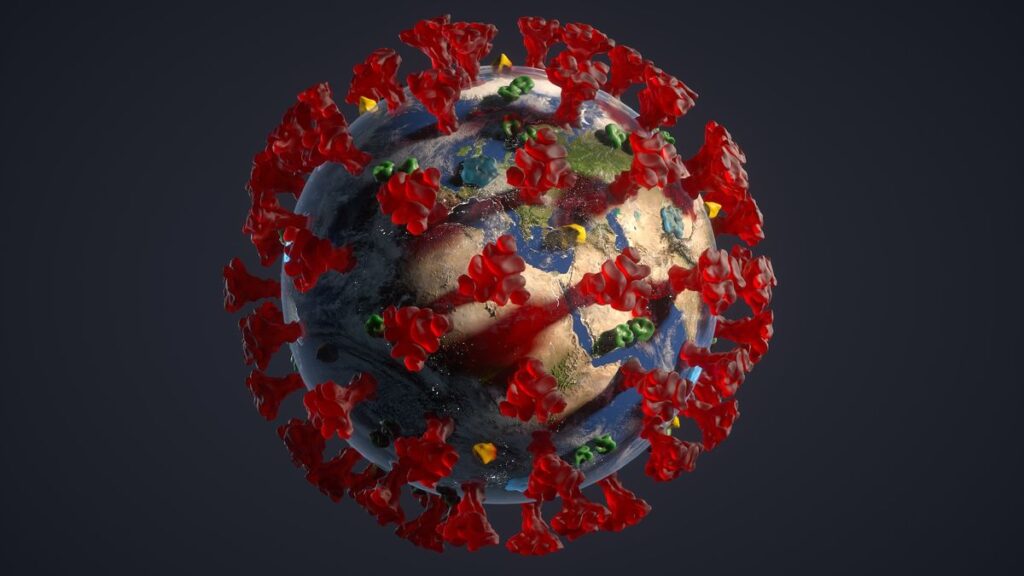
Pandemics — the global spread of infectious diseases — seem to be making a comeback. In the Middle Ages we had the Black Death (plague), and after the first world war we had the Spanish flu. Tens of millions of people died from these diseases.
Then science began to get the upper hand, with vaccination eradicating smallpox, and polio nearly so. Antibiotics became available to treat bacterial infections, and more recently antivirals as well.
But in recent years and decades pandemics seem to be returning. In the 1980s we had HIV/AIDS, then several flu pandemics, SARS, and now COVID (no, COVID isn’t over).
So why is this happening, and is there anything we can do to avert future pandemics?
Related: 32 diseases you can catch from animals
Unbalanced ecosystems
Healthy, stable ecosystems provide services that keep us healthy, such as supplying food and clean water, producing oxygen, and making green spaces available for our recreation and wellbeing.
Another key service ecosystems provide is disease regulation. When nature is in balance — with predators controlling herbivore populations, and herbivores controlling plant growth — it’s more difficult for pathogens to emerge in a way that causes pandemics.
But when human activities disrupt and unbalance ecosystems — such as by way of climate change and biodiversity loss — things go wrong.
For example, climate change affects the number and distribution of plants and animals. Mosquitoes that carry diseases can move from the tropics into what used to be temperate climates as the planet warms, and may infect more people in the months that are normally disease free.
We’ve studied the relationship between weather and dengue fever transmission in China, and our findings support the same conclusion reached by many other studies: climate change is likely to put more people at risk of dengue.
Biodiversity loss can have similar effects by disrupting food chains. When ranchers cleared forests in South America for their cattle to graze in the first half of the 20th century, tiny forest-dwelling, blood-feeding vampire bats suddenly had a smörgåsbord of large sedentary animals to feed on.
While vampire bats had previously been kept in check by the limited availability of food and the presence of predators in the balanced forest ecosystem, numbers of this species exploded in South America.
These bats carry the rabies virus, which causes lethal brain infections in people who are bitten. Although the number of deaths from bat-borne rabies has now fallen dramatically due to vaccination programs in South America, rabies caused by bites from other animals still poses a global threat.
As urban and agricultural development impinges on natural ecosystems, there are increasing opportunities for humans and domestic animals to become infected with pathogens that would normally only be seen in wildlife — particularly when people hunt and eat animals from the wild.
The HIV virus, for example, first entered human populations from apes that were slaughtered for food in Africa, and then spread globally through travel and trade.
Meanwhile, bats are thought to be the original reservoir for the virus that caused the COVID pandemic, which has killed more than 7 million people to date.
Ultimately, until we effectively address the unsustainable impact we are having on our planet, pandemics will continue to occur.
Targeting the ultimate causes
Factors such as climate change, biodiversity loss and other global challenges are the ultimate (high level) cause of pandemics. Meanwhile, increased contact between humans, domestic animals and wildlife is the proximate (immediate) cause.
In the case of HIV, while direct contact with the infected blood of apes was the proximate cause, the apes were only being slaughtered because large numbers of very poor people were hungry — an ultimate cause.
The distinction between ultimate causes and proximate causes is important, because we often deal only with proximate causes. For example, people may smoke because of stress or social pressure (ultimate causes of getting lung cancer), but it’s the toxins in the smoke that cause cancer (proximate cause).
Generally, health services are only concerned with stopping people from smoking — and with treating the illness that results — not with removing the drivers that lead them to smoke in the first place.
Similarly, we address pandemics with lockdowns, mask wearing, social distancing and vaccinations — all measures which seek to stop the spread of the virus. But we pay less attention to addressing the ultimate causes of pandemics — until perhaps very recently.
A planetary health approach
There’s a growing awareness of the importance of adopting a “planetary health” approach to improve human health. This concept is based on the understanding that human health and human civilisation depend on flourishing natural systems, and the wise stewardship of those natural systems.
With this approach, ultimate drivers like climate change and biodiversity loss would be prioritised in preventing future pandemics, at the same time as working with experts from many different disciplines to deal with the proximate causes, thereby reducing the risk overall.
The planetary health approach has the benefit of improving both the health of the environment and human health concurrently. We are heartened by the increased uptake of teaching planetary health concepts across the environmental sciences, humanities and health sciences in many universities.
As climate change, biodiversity loss, population displacements, travel and trade continue to increase the risk of disease outbreaks, it’s vital that the planetary stewards of the future have a better understanding of how to tackle the ultimate causes that drive pandemics.
This edited article is republished from The Conversation under a Creative Commons license. Read the original article.
